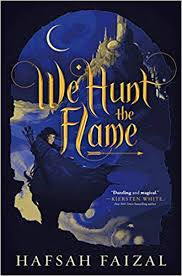An Ode to an Overlooked Culture: A "Hillbilly Elegy" review
- Lexi

- Apr 14, 2019
- 4 min read
When I first began "Hillbilly Elegy" by J.D. Vance, I really expected a book full of rich male entitlement and a sense of "I'm Better Than You". However, I was pleasantly surprised at the lack of that. J.D. Vance is a Yale educated lawyer and former Marine who served in Iraq. He's also the son of a drug addict and had a revolving door of father figures in his life.
Vance grew up in a tiny town in the poorest area of America. A lot of what he grew up seeing and experiencing reminds me of my tiny town of Baker, Florida. Vance witnessed drug addicts, economic failure, and growing up poor. While I am not poor, and I was not abused, much of what he said really resonated with me. If you know me, then you know I absolutely DO NOT write or highlight in my books. However, I felt so strongly about this book that I could not go by these lines without notating things.
While I myself did not grow up poor, many of my classmates and my boyfriend of 4 years did. I worked in the local grocery store to pay for my band trip, I often witnessed people coming in and counting out coins or budgeting for their EBT cards.
Vance himself worked at his own local grocery store, albeit he did so for actual money. On page 139, paragraph 2, Vance writes "I also learned how people gamed the welfare system. They'd by two dozen-packs of soda with food stamps and then sell them at a discount for cash. They'd ring up their orders separately, buying food with food stamps, and beer, wine, and cigarettes with cash." This is something I often witnessed myself, however I doubt anyone was selling sodas out of the back of their trucks. I did, however, watch people pay for their beer and dip in cash rather than with the cards that were obviously peeking out of their wallets. I'm not judging them by any means. Just because you're on food stamps doesn't mean you should never have any luxuries. Helping people on EBT and those on the poverty line is actually what I wrote my college entrance essay on.
I also know that I and most of my community fully agree with the statement he writes later on the same page: "Every two weeks, I'd get a small paycheck and notice the line where federal and state income taxes were deducted from my wages. At least as often, our drug-addict neighbor would buy T-bone steaks, which I was too poor to buy for myself but was forced by Uncle Sam to buy for someone else." This is a fundamental problem in today's welfare system. I am not saying that no one should receive assistance. I am saying that there must be a better way to encourage people to not make subverting the welfare system their careers.
Many people say that J.D. Vance takes the cowardly route because he does not talk about the obvious racism that lies in the working-class poor. I strongly disagree. I feel like this book was his experience and his perspective, and a kid who's mother tried to kill him and went to jail multiple times while he bounced around from home to home wasn't really worried about which one of his family members was calling Black people bad names and claiming that immigrants were stealing their jobs. These days if you make one thing about race, then EVERYTHING has to be about race. There's suddenly a racial tint to everything you write. If you write something about a white person, then you have to write something about a Black person. I also feel like the book was more about economic trouble rather than social trouble. I feel like on page 57 and 58, where he talks about white working-class people thinking they work long hours when they don't resonated with me more deeply than almost anything else in the entire book.
Obviously J.D Vance is biased. This is a book about his life from his perspective. Of course he didn't like outsiders helping his family or going to a therapist. Of course he feels a little bitter towards the 1%. When you grow up with nothing, how can you not feel bitter?
I grew up middle middle class and when the recession hit, we teetered towards lower middle class. My parents worked their entire lives. My mom and dad both grew up very poor in money but rich in love. My parents always provided for me and stuck it out, even when things got rough. If not, there's no telling where I'd be. Vance is entirely correct when he says that the thing that makes the difference to these kids is a constant, unchanging presence in these kids' lives. For me, it was my family staying on me and making me care about my grades.
I hold some of the same bitterness as Vance does. I have to work through college, while many of my classmates prance off to London or Italy for Spring Break or Summer. I have to buy my own luxuries while many flaunt theirs on their sorority Instagrams or influencer pages. However, I am very blessed that my mom works long hours and is able to help me with some finances, and I am also blessed my parents did the prepaid plan as well as I earned the Bright Futures scholarship through the state to pay for college.
All in all, if you are from a small town or if you are looking to understand small towns, I definitely recommend this book to you. I would also love to hear your thoughts about it as well!
-Love and good books,
Lexi



Comments